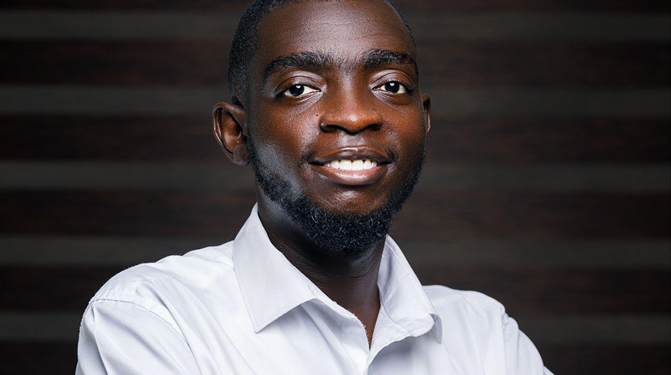On a global stage, the idea of a 24-hour economy isn’t new. Cities like New York have long been dubbed “the city that never sleeps,” while in countries like the UAE, India, and China, manufacturing hubs run on night and day shifts to meet global demand. Now, Ghana is considering a similar leap, with President John Mahama unveiling an eight-pillar framework aimed at positioning Ghana as a round-the-clock economy.
At its core, the 24-hour economy is about extending economic activity beyond the usual 9–5. It’s about running factories through the night, keeping ports active beyond business hours, and opening up job opportunities for more people in more shifts. But as exciting as it sounds, the question many are asking is: Are we ready?
As a research analyst, I find this moment both ambitious and thought-provoking. Not because the vision isn’t bold, but because execution will rest heavily on data, planning, and how well we understand what works elsewhere.
What Makes a 24-Hour Economy Work?
Countries that have successfully adopted this model often have a few things in common:
- Reliable infrastructure: Think electricity, transportation, and internet.
- Security: People must feel safe commuting or working at night.
- Incentives for businesses: Lower tariffs, tax breaks, or flexible labor laws.
- Demand: There’s usually a need—local or global—for products or services that justify the extended hours.
For instance, in parts of India, tech hubs and export processing zones run on multiple shifts to meet global time zones. In China, factories in cities like Shenzhen operate round-the-clock because of both local demand and international contracts. These models show that with the right systems in place, working through the night can indeed boost productivity, exports, and jobs.
Ghana’s Position: Where We Stand
Ghana has some building blocks in place:
- Our youth population is growing, and many are underemployed. The 24-hour model could absorb some of that energy.
- Initiatives like Ghana.gov, digital ID systems, and mobile money penetration already support digital public services beyond office hours.
- Key industries like agriculture, logistics, mining, and light manufacturing could benefit from running longer hours.
But we must also be honest:
- Energy supply remains inconsistent in some areas.
- Security concerns, especially at night, are real for workers and businesses alike.
- Transport systems do not yet support mass commuting late into the night.
According to the President, one of the key goals of the 24-hour economy is to shift Ghana away from being an import-driven economy. As of 2023, imports accounted for about 35% of GDP, while exports made up just over 34%, reflecting a narrow but critical trade imbalance. If implemented well, extended operations, particularly in manufacturing, agriculture, and port logistics, could help boost exports, reduce dependency on imports, and reposition Ghana as a more productive, self-reliant economy
What the Data Tells Us
We don’t have to dive into heavy models to see the potential here: according to the Ghana Statistical Service (GSS), the national youth unemployment rate is over 13%, with broader underemployment affecting even more people. That means roughly 1 in 8 young Ghanaians is officially unemployed – an opportunity gap that the 24-hour economy aims to address.
At the same time, Fitch Solutions projects a headline unemployment rate of around 4% in 2025. This difference highlights a known challenge: the headline rate masks substantial youth-specific and underemployment pressures. As a researcher, this tells me two things:
- There’s clear space for targeted night-shift jobs to absorb this excess labour, especially if accurately tracked and monitored.
- Any policy success must be measured not merely by headline employment gains, but by how much youth unemployment and underemployment decline.
Indicative sectors like manufacturing, logistics, healthcare, and digital services could gain significantly if they shift to multi-shift operations. Simple data points like increases in formal shift-based job registrations or nighttime electricity usage can offer early signs of success
Also, the majority of our exports happen during peak hours, creating congestion and delays. If customs and port services operated longer, clearance times could drop, and more goods could leave our shores on time.
These are the little things that add up in the big picture.
Start Smart, Measure as You Go
Ghana is moving ahead with the 24-hour economy—and rightly so, the President emphasized today that success will depend on how well we implement, not just how bold the idea is. His call for a coordinated, strategic rollout should guide how this vision takes shape.
The focus now should be on phased adoption. Let’s begin with sectors that are structurally ready, like manufacturing zones, hospitals, transport, or digital service hubs. Then scale as we learn what works.
More importantly, we must measure. If this model is going to deliver, we need to keep asking:
- Are more businesses operating at night?
- Are workers safe, fairly compensated, and productive?
- Are energy systems and infrastructure holding up?
These questions aren’t just checkboxes; they’re indicators of whether this bold shift is truly working for the people it aims to serve.
Final Thoughts
Ghana has always been capable of bold ideas. The 24-hour economy is one of them. But ideas need structure. They need data. And they need honest conversations about what is realistically possible now, and what must be built over time.
Let’s not be afraid of the night, but let’s make sure it works for the people who will carry its weight.
About the author:

David Nii Armaah is a top-tech Researcher and an Industry voice. He possesses the analytical skills of an applied researcher and expertise in data, technology, innovation, and digital entrepreneurship.
Connect via LinkedIn: David Nii Amaah
DISCLAIMER: The Views, Comments, Opinions, Contributions and Statements made by Readers and Contributors on this platform do not necessarily represent the views or policy of Multimedia Group Limited.
DISCLAIMER: The Views, Comments, Opinions, Contributions and Statements made by Readers and Contributors on this platform do not necessarily represent the views or policy of Multimedia Group Limited.
- President Commissions 36.5 Million Dollars Hospital In The Tain District
- You Will Not Go Free For Killing An Hard Working MP – Akufo-Addo To MP’s Killer
- I Will Lead You To Victory – Ato Forson Assures NDC Supporters
Visit Our Social Media for More




